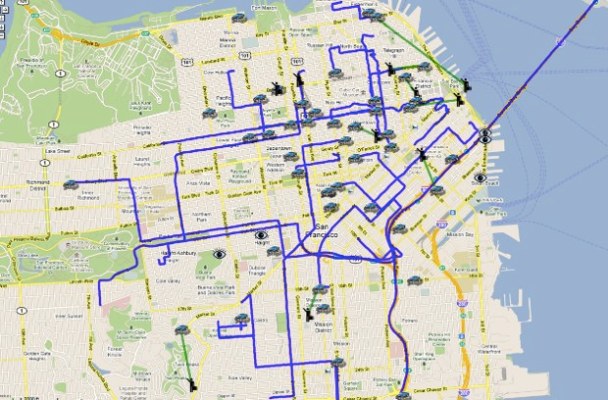On-demand car hailing service Uber’s latest PR disaster doesn’t tell us anything we didn’t already know about the company. It is, after all, unabashedly named Uber. Translation: above. Aka: superior. Its brand is absolutely intended to embody and convey all the dastardliness required to get to that lofty perch uber alles. Because such sentiment befits a selfish service which tells you your journey absolutely demands a personal driver. That your journey will not be achieved by you getting up and walking there. Or taking public transport. Or ride-sharing. Because your journey must convey your ego too, and that demands a VIP service.
As others have noted, Uber is the ultimate Randian company. Its service is about instant, luxurious gratification. So the more diva-ish it makes its customers feel, the less ashamed to take an Uber they’ll be. That’s why — on a basic level — being dastardly is something Uber is. It’s a tactic to scale. Or, better still, to inflate via inflating our egos. This is psychological growth hacking. To get more people into the Uber mindset so it can achieve its touted world domination.
(Of course we’ve seen similarly grand social conditioning efforts from other hugely ambitious tech companies also on a mission to re-engineer social behavior to mould it to better fit their business model — Facebook’s Mark Zuckerberg declaring that privacy is no longer a “social norm” springs most readily to mind. Privacy dead? Uh, no chance.)
So it’s no surprise that dastardly behaviour and Uber go hand in hand. Whether those low blows are aimed at regulators or rivals or — as most recently — journalist critics. Even Uber’s drivers are viewed as unfortunate luggage by this red-in-tooth-and-claw capitalist company which hopes to be able to edit them out in time, when driverless cars will enable it to liquidate another pesky meat-based cost centre.
What’s more surprising perhaps is that Uber views its customers with as much clinical abstraction as it does its critics: seeing a series of 1s and 0s shuttling around its systems; mere increments to be totted up and toyed with — via party games like God View. (God View, in case you missed this particularly egregious display of anti-privacy behavior, is the real-time interface used by Uber employees to look down upon the movements of its customers — a system it has shown off at parties without gaining permission from the people whose movements were being put on public display). But then when you’ve decided your business strategy demands donning a Doctor Evil mask it’s probably pretty easy to forget where the latex ends and the skin begins.
(Maybe Uber forgetting to remember its customers are, y’know, human can be explained by the following equation: if information is power, and power corrupts, then unfettered access to personal data = Doctor Evil!)
What’s most interesting about Uber’s God View is what it shows us about the future of privacy. Here then is a perfect glimpse of one possible future for consumer digital services — where data-enabled omnipotence encourages privacy-trampling manipulations; where ceaseless, intrusive surveillance is not just something governments apply to citizens in the amorphous interests of ‘Homeland Security’; where zero privacy becomes a commercial baseline and the user is routinely stripped of personal data assets, required to surrender everything at the door, with nakedness the ‘fee’ to enter the VIP party.
This ‘future’ — of course some might argue we are already living in just such a dystopia — says accepting dastardly behavior that tramples all over personal privacy is the price, the table stakes, for accessing the latest shiny, ego-massaging digital service du jour.
That’s one option. The other option is this: to say NEIN. Because digital consumers do have a choice. We are not, in fact, binary digits that can be directed wherever we’re told, as Uber’s megalomaniacal God View supposes. We can make up our own minds about what is acceptable and what is not. And digital services that display zero respect for our personal information, indeed, which make a flagrant display of their disregard for our privacy, are services we can choose not to use. That’s a very simple equation too.
Apps aren’t a novelty anymore. On-demand car services are plentiful. Uber may have the brashest brand in town but it’s not the only way to get from A to B. Never has been, and — god help us — hopefully never will be. People can pick and choose the apps and digital services they use, and choice is only going to keep increasing as services continue proliferating. So startups that respect user privacy and make the effort to safeguard personal data have a chance to rise to the top, without having to do anything dastardly to get there.
Indeed, by doing exactly the opposite.
We are watching too, Uber.
